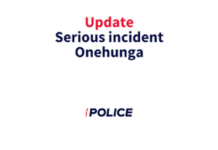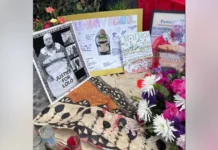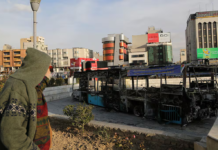There is currently a linguistic shift occurring in Tongan communities, particularly in the context of funerals, where the word ‘aofia is increasingly being used to refer to the funeral wake.
However, this usage is incorrect and diverges from the traditional and accurate term: ‘āfia.
According to Churchward’s Tonga Dictionary, the word ‘āfia is defined as: “To keep watching over (a corpse) during the night.”
This term has long been used in Tongan culture to describe the vigil held over a deceased person, a practice deeply rooted in respect, mourning, and communal support.
Other synonymous expressions include ‘āfaki and ‘ā pō, both of which also refer to night vigils or funeral wakes.
The word ‘āfia is derived from ‘ā, which means to open one’s eyes, to awaken, or to be awake.
The Confusion with ‘Aofia
The word ‘aofia, although phonetically similar, carries a completely different meaning. It derives from the root ‘aofi, which means:
To defend, protect, especially to place oneself between danger and the person endangered.
This word is used in contexts of covering, shielding, or protection, not mourning or vigil. For example:
- ‘Oku ‘aofia ‘a e la’aa’ ‘e he konga ‘ao.
“The sun is covered with a cloud.”
This sentence illustrates the protective or covering nature of ‘aofia, which has no semantic connection to funeral practices.
This etymology highlights that using ‘aofia instead detaches the word from its true meaning, as ‘ao in ‘aofia does not convey the sense of being awake.
The misuse of ‘aofia to refer to funerals is now widespread, especially as funeral wakes are increasingly being held during the daytime—unlike in the past, when they were traditionally conducted at night.
Despite this shift in timing, the correct term ‘āfia still applies.
The only change is in the accompanying time reference: from ‘ā pō, meaning “wake at night,” to ‘ā ‘aho, meaning “wake during the day.
Why Accuracy Matters
Language is a vessel of culture and identity. Misusing words—especially in sacred contexts like funerals—can dilute cultural meaning and lead to confusion.
Preserving the correct usage of ‘āfia ensures that Tongan traditions remain linguistically and culturally intact.
The use of ‘aofia to refer to a funeral wake is a linguistic error. The correct term is ‘āfia, as documented in authoritative sources and supported by traditional usage.
We especially urge the media to preserve and use the correct word ‘āfia accurately, rather than the incorrect ‘aofia.







